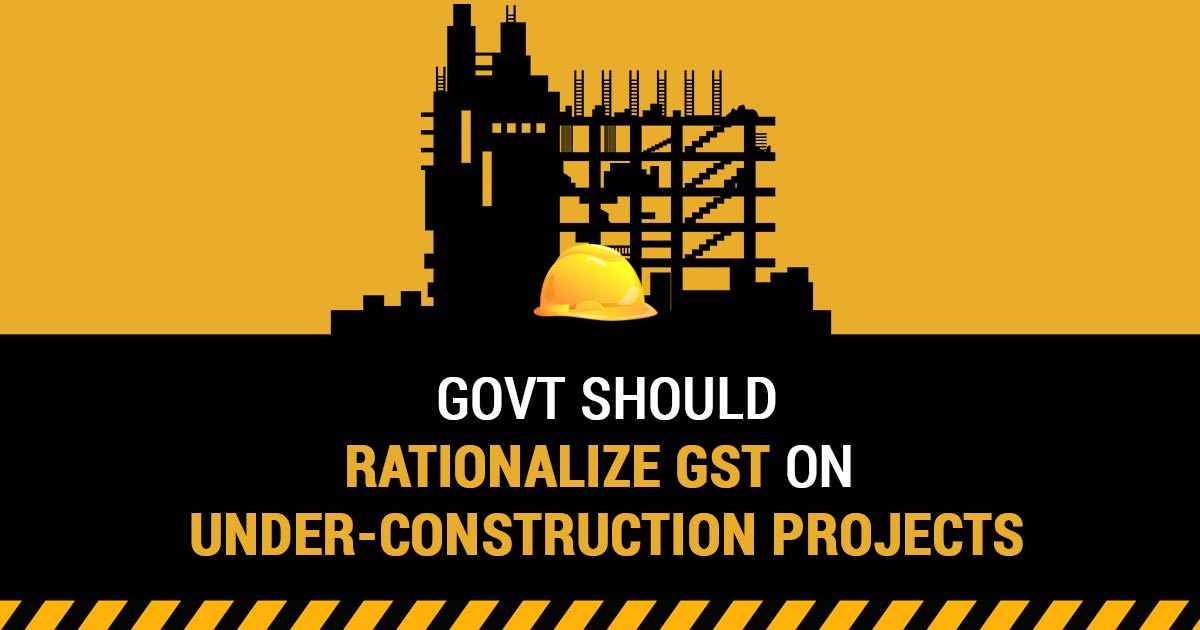
To promote the sale of under-construction properties, real estate professionals and developers are urging the government to rationalize the Goods and Services Tax (GST) on those properties. As buyers must now pay stamp duty, registration fees, and the GST, the selling of houses that are still under construction has dropped.
Sales of property that is still being built are declining, Liases Foras founder and managing director Pankaj Kapoor, who is a specialist in real estate held. Many purchasers choose to purchase ready-to-move-in residences because the under-construction property is subject to Tax. Also, homes that are ready for occupancy have fewer risk considerations attached to them.
Hence, in order to attract buyers, developers rush to finish the home, which requires borrowing money. Together with borrowing interest, the higher input cost is added to the property’s worth, which is ultimately covered by the client. As a result, the government needs to rationalize the Tax.
Leading developer Dhaval Ajmera also stated that the implementation of GST is increasing the cost of the project and the selling of apartments. When a refund was offered earlier, it reduced the price; however, since there is no longer a discount, the price has increased. The consumer receives it in a roundabout way.
The government has long been urged to make the GST returnable and to grant input credit. The cost of a project is going up due to the present increase in input and construction prices and the GST. As a result, it should be made returnable as we do not receive any input credit for the cost of building, which is typically between 15% and 18%, and an additional 5% GST is levied on sales.
In the meantime, the government has made the decision to tax capital gains up to Rs. 10 crore starting on April 1. Including property and commercial office space, Kapoor anticipates a rise in cash transactions in the luxury market. He emphasized that the implementation of capital gains taxes might lead to an increase in illicit money in the real estate sector.